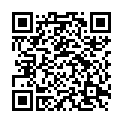|
|
|
| Module code: E2501 |
|
|
2V+1P (3 hours per week) |
|
4 |
| Semester: 5 |
| Mandatory course: yes |
Language of instruction:
German |
Assessment:
Written exam
[updated 08.01.2020]
|
E2501 (P211-0113) Electrical Engineering and Information Technology, Bachelor, ASPO 01.10.2018
, semester 5, mandatory course, technical
|
45 class hours (= 33.75 clock hours) over a 15-week period.
The total student study time is 120 hours (equivalent to 4 ECTS credits).
There are therefore 86.25 hours available for class preparation and follow-up work and exam preparation.
|
Recommended prerequisites (modules):
None.
|
Recommended as prerequisite for:
|
Module coordinator:
Prof. Dr. Michael Kleer |
Lecturer: Prof. Dr. Michael Kleer
[updated 10.09.2018]
|
Learning outcomes:
After successfully completing this course, students will be familiar with how microprocessors and microcontrollers work, in particular the interaction of hardware and software components. Students will be able to understand a microcontroller system and put it into operation for a given task. This module focuses on application-relevant aspects. Students will be able to independently find solutions to new tasks.
[updated 08.01.2020]
|
Module content:
1. Introduction to digital technology with calculation and memory circuits, decoding, basic structure of a microcomputer with RAM, ROM and I/O components, program sequence, timing diagrams, interrupt handling, wait states 2.Structure of the experimental computer board with the Infineon C515C controller, functionality of the controller, signal assignment and interconnection of signals, functionality of the integrated unit 3.Interaction of the microcontroller with integrated peripheral components such as parallel interfaces 4.Work on the experimental computer board based on guided exercises
[updated 08.01.2020]
|
Teaching methods/Media:
Presentation, blackboard, lecture notes
[updated 08.01.2020]
|
Recommended or required reading:
Horacher, Martin: Mikrocomputer, TU Wien, 1999 Johannis, Reiner: MC-Tools 15, Feger, 1994 Klaus, Rolf: Der Mikrocontroller C167, VDF Hochschulverlag, 2000 Schultes, Renate; Pohle, Ingo: 80C166 Mikrocontroller, Franzis, 1998, ISBN 978-3772358937
[updated 08.01.2020]
|


